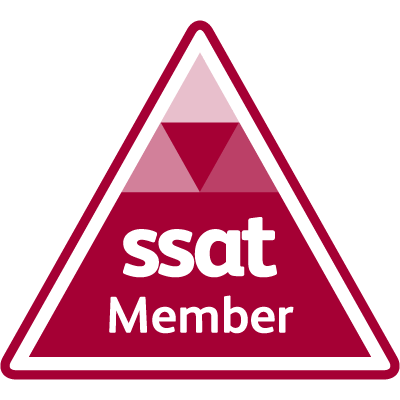Home Learning
HOME LEARNING MATTERS
Parli+
To support the students’ home-learning, we offer a homework/ revision club called Parli+. This provides after school access to a computer room where students can complete tasks on Microsoft Teams, Seneca, Sparx and other online resources. Parli+ is an ideal space for:
· Students without their own personal computer at home
· Student without their own quiet space
· Students who want to improve their digital skills
· Students who would like some extra support
Students who attend Parli+ receive extra support from the club’s supervisors as well as a number of subject teachers who regularly drop in.
Parli+ is open to all year groups and runs for 4 days a week (everyday apart from Wednesday), from 3:15pm to 4:15pm in K22.
What is Home Learning?
Any learning that takes place outside of timetabled lessons is ‘home’ learning. It does not necessarily need to be completed at home.
Home learning focuses on extending the learning from the classroom so that new content is rehearsed and practiced. The more that students re-visit their learning the more likely they are to remember it and be able to apply it to new situations.
Home learning tasks mainly fall into one of two categories; Practice or Preparation.
Most tasks at KS3 will be short practice tasks, though they may be asked to do some basic preparation for a lesson. By doing some pre-thinking, they should be ready to access their prior knowledge and build on this in the classroom.
Home learning is different to independent learning projects. These will be less frequent and in addition to the short home learning tasks at KS3. They may be called ‘challenges’ or ‘projects’ and may be optional.
Independent learning projects can take several weeks to complete and involve students applying a wider skill set such as creativity, initiative, time management and teamwork.
Why are students set home learning?
Educational research evidence shows that completing regular home learning tasks over the course of an academic year can extend a student’s progress by 5 months.
Independent learning projects have also been shown to have positive learning outcomes particularly on student motivation and commitment to a subject. They are often targeted at students who are ready for further challenge or students with a particular curiosity in order to develop research and critical thinking skills.
At KS4, evidence suggests that students completing 2-3 hours of home learning each night are 9 times more likely to achieve 3 A-levels at KS5. It is important to embed habits for success when in KS3.
How much home learning should we expect?
|
Year 7 and 8 |
30-45 minutes of home learning per day. |
|
Year 9 |
60-90 minutes of home learning per day. |
|
Year 10 and 11 |
90-180 minutes of home learning per day. |
It is important to recognise that students will not necessarily be set this each day, some days may be more and some days may be less.
The frequency of home learning assignments will depend on the subject. Please visit the KS3 or KS4 curriculum pages for more details on departmental expectations and support.
Tasks can vary in type and length. Not all home learning requires written evidence. For example, students may be asked to discuss their learning with their parents or friends, they may be asked to read and prepare their reflections ready for a class discussion or they may be asked to memorise a set of words.
Home learning will be acknowledged and sometimes a sample collected in for a teacher to analyse for common mistakes. Non-completion will be recorded and the student may be expected to catch up this missed work. This will usually involve a short lunch or break time ‘detention’ where there is a chance to complete the task or start the next home learning task. Students are encouraged to seek out their subject teachers before the deadline if they need support or an extension.
At KS3 most home learning tasks should be short practice tasks and will not require deep marking or grading. Students will usually be given success criteria and notified when home learning will be marked in detail and assessed. At KS4 there will be more regular grading of home learning tasks although this will depend on the subject.
How is home learning set?
All home learning assignments are set via Microsoft Teams. Students are expected to have access to a computer and internet access at home and to check their ‘assignments’ page every night. If you require any support with digital access, it is very important to notify your child’s Achievement Team Leader. Students can also access their ‘Teams’ account at weekly home-learning clubs and in the school library.
Most assignments can be submitted on-line. It is important that students remember to click ‘Turn In’ on each task even if they plan to hand in their work on paper. Any assignments which have not been ‘turned in’ will be reported to parents in a weekly automated email. This will also inform you of any upcoming home learning deadlines.
Students can contact their teachers via Teams to ask for help or clarification. Teachers will check Teams every day but are not expected to respond in the evening.
What is the role of parents in home learning?
As your child grows older, more emphasis is placed upon encouraging them to learn independently. Your role remains important by ensuring that:
- you show an interest in your child’s learning and emphasise the value and importance of regular home learning;
- your child manages and copes with the home learning workload;
- home learning is completed by the deadline;
- if your child needs help with it, you offer assistance and understanding. This can include reminding them to seek out support from their tutor or classroom teacher at an appropriate time.
Every student is given a home learning planner. Parents can support by reviewing this planner on a regular basis to ensure that tasks are being recorded and completed.
Many tasks will require students to rehearse their learning. It is very helpful to quiz your child on their learning on a regular basis. The simple act of recall of the lesson topic or title is supporting memory and their ability to recall deeper knowledge in the future.
Independent learning tasks may be appropriate for the whole family to engage in. Research could include attending museums or watching documentaries together. Teachers will be happy to make suggestions for places to visit or extra learning materials that are available on topics.
What support is available at school?
If a student is unclear of their home learning task it is important that they contact their classroom teacher directly for support before the task deadline. Many teachers offer break or lunchtime support to students who ask for it directly.
Many departments offer a homework club either at lunch or after school. Students should consult the clubs list for further details.
The Form Tutor is also a key person to liaise with if you are concerned about the level or quality of home learning. They can support students with time management and communicating with class teachers for extra resources or a suitable time to seek extra help.
The library is a space for students to complete home learning tasks at lunchtime and after school. The library is open Monday - Friday, 8am-4:30pm. The Parli Learner Hub Team is a virtual library space on Teams which has resources to support with home learning assignments.
Achievement Team Leaders will monitor home learning and may provide additional support for targeted groups who struggle to access home learning tasks or to meet deadlines.
Lexia
To access your Lexia account, please click here.








